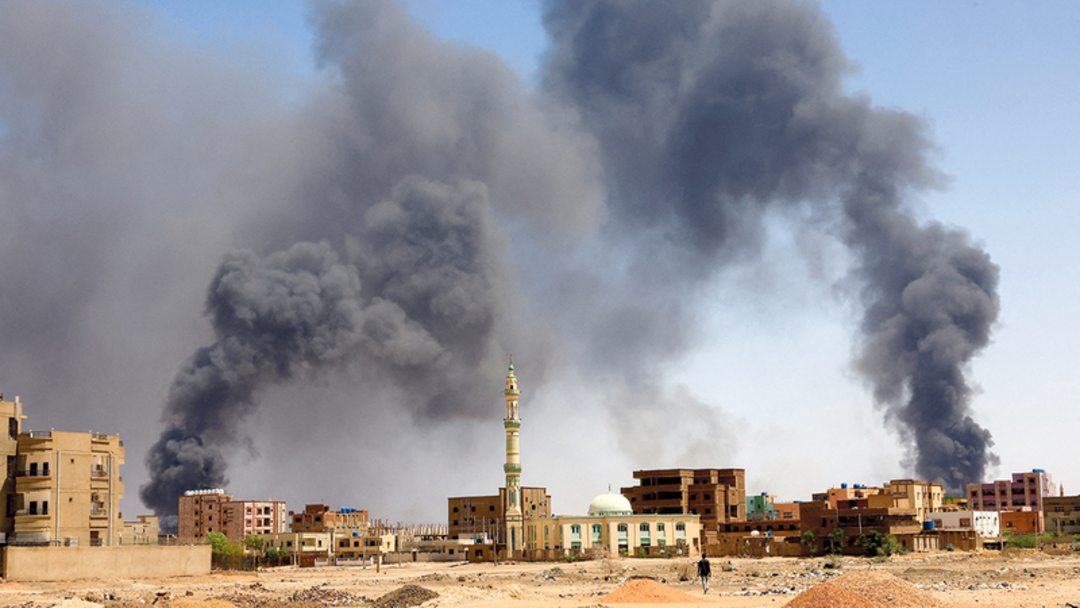-
Healthcare Crisis in Sudan: 75% of Khartoum Facilities Out of Service
-
The collapse of the healthcare system in Sudan, especially in the capital Khartoum, highlights the urgent need for a political solution to the conflict, as continued fighting threatens to turn the cou

The World Health Organization (WHO) has issued a stern warning about the deteriorating humanitarian situation in Sudan, indicating that the continuation of armed conflict could lead to massive human losses unless urgent action is taken to stop the bloodshed.
This warning came from Hanan Balkhy, WHO Regional Director for the Eastern Mediterranean, during a press conference held in Cairo on Tuesday.
Balkhy explained that the war raging for nearly 18 months has caused the world's largest internal displacement crisis, with more than 25 million people, over half of Sudan's population, in dire need of food and healthcare.
She added, "Malnourished children and mothers are dying due to lack of care, cholera is spreading in many parts of the country, and aid workers face enormous challenges."
In a related context, Richard Brennan, WHO Regional Emergency Director, revealed that more than 20,000 cholera cases have been recorded this year in half of Sudan's eighteen regions.
He noted that this outbreak is spreading faster compared to last year, putting additional pressure on the collapsed health system. In an attempt to address this situation, Brennan announced the start of an oral vaccination campaign this week, with 1.4 million doses arriving and another 2.2 million expected later.
The alarming statistics provided by the organization indicate that 75% of health facilities in the capital Khartoum are out of service, while the situation in western and southern Sudan appears even worse.
This collapse of the health system comes amid ongoing battles between the army and the Rapid Support Forces, which erupted in mid-April 2023 over competing plans for transition to civilian rule.
Under these catastrophic conditions, voices calling for urgent international intervention to save the situation in Sudan are growing louder. Balkhy warned explicitly, "If there is no immediate intervention, famine and disease will claim countless lives," which places a moral and humanitarian responsibility on the international community to act quickly before the crisis turns into an unprecedented humanitarian catastrophe.
The question remains: Will the international community be able to overcome political differences and move effectively to save millions of lives in Sudan? And will diplomatic efforts succeed in finding a political solution that ends the conflict and opens the door for comprehensive humanitarian relief operations?
Levant-Agencies
You May Also Like
Popular Posts
Caricature
BENEFIT Sponsors BuildHer...
- April 23, 2025
BENEFIT, the Kingdom’s innovator and leading company in Fintech and electronic financial transactions service, has sponsored the BuildHer CityHack 2025 Hackathon, a two-day event spearheaded by the College of Engineering and Technology at the Royal University for Women (RUW).
Aimed at secondary school students, the event brought together a distinguished group of academic professionals and technology experts to mentor and inspire young participants.
More than 100 high school students from across the Kingdom of Bahrain took part in the hackathon, which featured an intensive programme of training workshops and hands-on sessions. These activities were tailored to enhance participants’ critical thinking, collaborative problem-solving, and team-building capabilities, while also encouraging the development of practical and sustainable solutions to contemporary challenges using modern technological tools.
BENEFIT’s Chief Executive Mr. Abdulwahed AlJanahi, commented: “Our support for this educational hackathon reflects our long-term strategic vision to nurture the talents of emerging national youth and empower the next generation of accomplished female leaders in technology. By fostering creativity and innovation, we aim to contribute meaningfully to Bahrain’s comprehensive development goals and align with the aspirations outlined in the Kingdom’s Vision 2030—an ambition in which BENEFIT plays a central role.”
Professor Riyadh Yousif Hamzah, President of the Royal University for Women, commented: “This initiative reflects our commitment to advancing women in STEM fields. We're cultivating a generation of creative, solution-driven female leaders who will drive national development. Our partnership with BENEFIT exemplifies the powerful synergy between academia and private sector in supporting educational innovation.”
Hanan Abdulla Hasan, Senior Manager, PR & Communication at BENEFIT, said: “We are honoured to collaborate with RUW in supporting this remarkable technology-focused event. It highlights our commitment to social responsibility, and our ongoing efforts to enhance the digital and innovation capabilities of young Bahraini women and foster their ability to harness technological tools in the service of a smarter, more sustainable future.”
For his part, Dr. Humam ElAgha, Acting Dean of the College of Engineering and Technology at the University, said: “BuildHer CityHack 2025 embodies our hands-on approach to education. By tackling real-world problems through creative thinking and sustainable solutions, we're preparing women to thrive in the knowledge economy – a cornerstone of the University's vision.”
opinion
Report
ads
Newsletter
Subscribe to our mailing list to get the new updates!






















